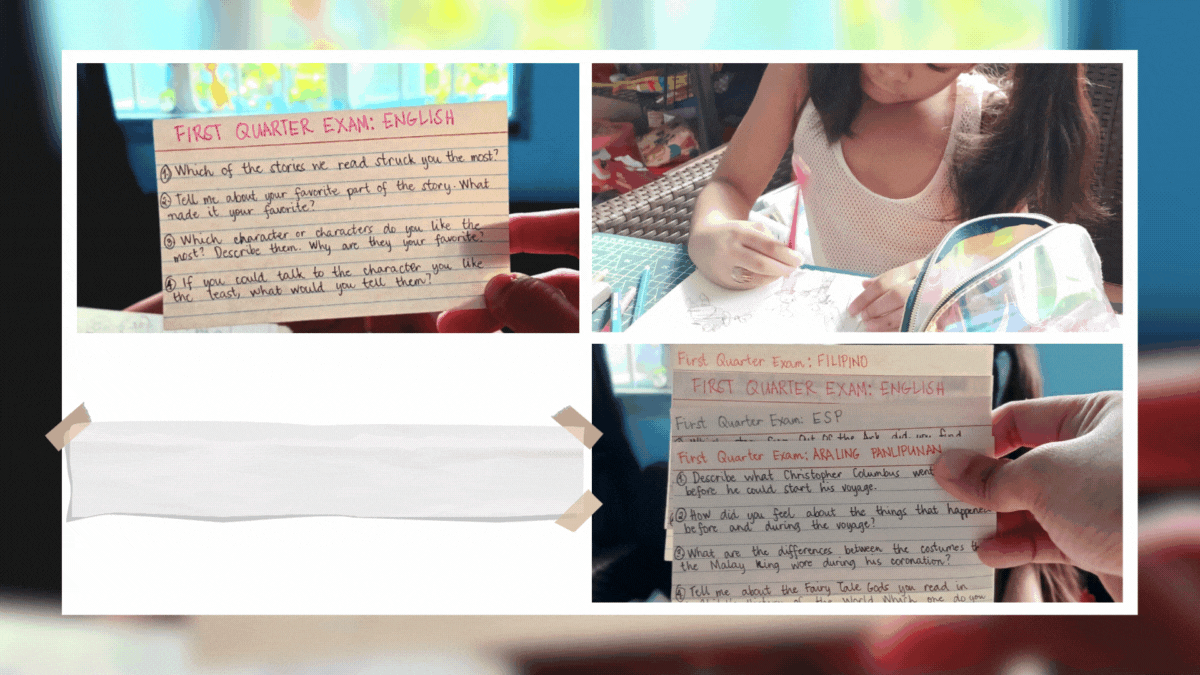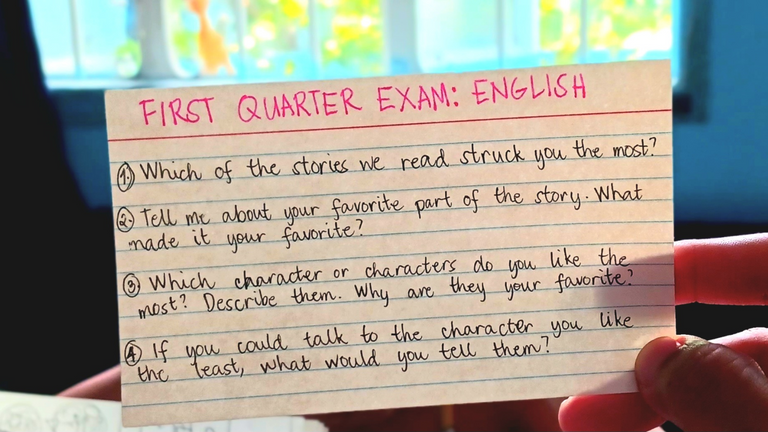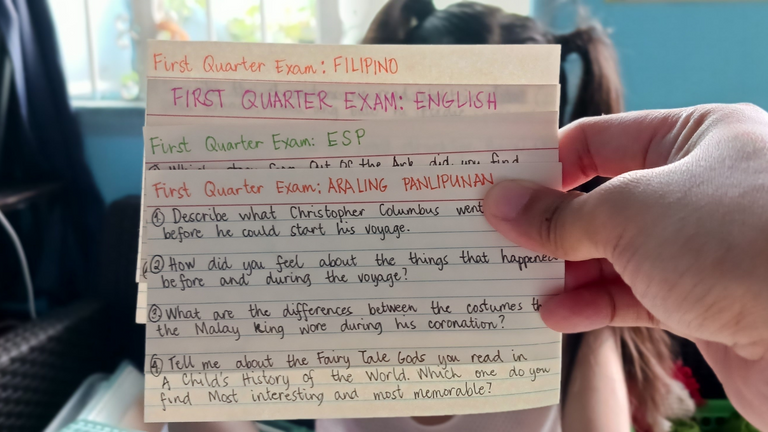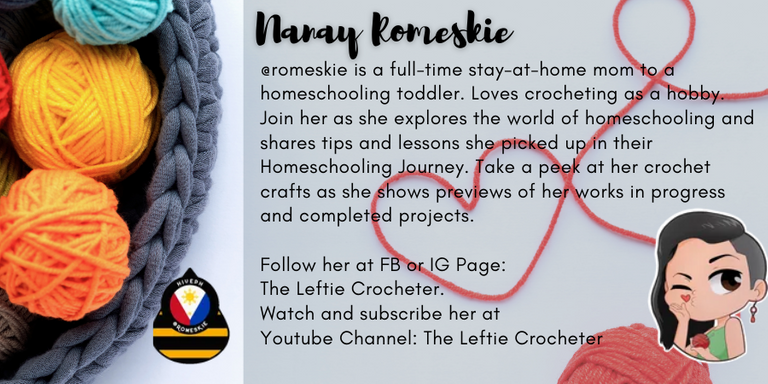
Last year, I talked about how thankful I am for finding out about the Charlotte Mason method in our examinations. For the entire year, we only had just a little bit of written exams amd a whole lot of oral exams since my kid was still in first grade. She did not need to review since the exams were centered on the things she already knew.
Every quarter, she looks forward to our quarterly exams. I still feel though that I may not be giving her enough of the things that she needs to know and understand. My job as her parent-educator is to ensure that she has a wide range of knowledge which will enable her to connect the dots in her brain to help her with formulating opinions and making decisions in the future.
Serving a full feast
So for this year, I decided to take the leap of serving her a full feast of knowledge. Since last year was our firsr year of trying out the Charlotte Mason method, it was a year full of learning both for her and for me. I was still holding back a little bit because I did not want to bite more than I can chew and I did not want to overwhelm her as well.
In most of the webinars I attended, one of my takeaways is to trust the child that they have the ability to understand the feast of knowledge served to them. And that they will take whatever is helpful for them. Kids will take what they will, according to CM's Home Education.
It's not about how much they know, but how much they care about what they know.

Last year, my theme was to ask questions set to find out what they know, not what they do not. This is thw reason why we don't review for exams. At least last year when she was in her first grade. I'm not sure how the structure of the exams in the higher grade levels would be but at least for now, I'm just helping her build those connections in her brain.
This year, since I have decided to serve her a full feast of knowledge in our curriculum, my inspiration for our exams are the words of Charlotte Mason in her School Education book.
"The question is not, — how much does the youth know? when he has finished his education — but how much does he care?"
Charlotte Mason, School Education, pp170-171
A lot of times we get too caught up with the scores we get at the end of the exams. I was talking to a fellow parent a couple of months back. That parent said, "So the child knows this trivia and that about this animal and that. So what? What does he do with that knowledge?" I kept thinking about it. Mainly because I've asked myself the same question back when I was studying and was forced to internalize the relationship of subject and verb and their agreement. I kept thinking why did I have to find X before in our Algebra? Why did I have to remember all the names of the presidents of the Philippines starting with Aguinaldo?
It does matter that the children know things like this but it matters more how much they care. The knowledge they get will help them in formulating wise opinions as an adult. And so the questionnaires I gave my daughter does not just make her remember the characters of the story we read, but also trains her to always look at the big picture. Finding out who did what is not as important as what did she learn from the things that transpired in the reading.
There are no right or wrong answers

Back in the day, when the notes on the examination paper shows Right answers minus wrong answers used to stress me out. These are the words I dread to see during examination. While some people thrive on stressful situations, most don't. When you're asking the WH questions to a child, it closes them in inside a box, hindering them from thinking creatively and wisely.
Our examinations are not graded depending on the number of details she was able to tell me. It is graded depending on how she formulated her thought, if she showed understanding of the idea, how she analyzed the situations thrown at her in the questions, how she evaluated and applied the learnings through her answer.
A way to train them to think and formulate opinions
My daughter is always excited when it's our quarterly exams week. She doesn't feel like she's being judged according to her scores. With the exams we've been through, she is now aware that the questions were there to her exercise her brain in formulating her own ideas and opinions based on the facts that we served her during the quarter.
Furthermore, with these exams, she feels that she is free to voice out her thoughts and opinions without the fear that she will be reprimanded if her opinion does not match with others. These kinds of exams also train children how to express their innermost thoughts in a way that is honest and respectful. I could not count the number of times my daughter and I had opposing opinions on things. At first, she was adamant that we should have the same thoughts about things. Now she learned the term "Agree to disagree."
i am not foregoing the traditional way of conducting exams. I still do that in our Math and PE exams, and other discipline related subjects. I am pretty sure that we will soon have terminologies and definitions on our exams. But for now, as part of our campaign of loving learning, we like to keep our exams as relaxed yet comprehensive and all-encompassing, focused on seeing how she thinks and formulates opinions, while gently training recall of various details on the full feast of knowledge we serve her.




naku, hate ko din yung pinag mememorize ako sa history ng mga tao ang years sis. I love the way ou teach your child. Ang gand ang pamamaraan mo
Ako rin hate ko yang memorization. Grabe ang hirap, may mga techniques pa akong ginamit noon para lang makakabisado. Haha.
naku, ako sis, wala. kulelat, hala kopya sa katabi, minsan nantatsamba. nairaos din naman.
It is very necessary to also understand the value of learning beyond the results of that learning itself and that is a small detail that most overlook, to appreciate the process.
Trusting the process too is so hard to do. I had my doubts when we started, especially since this isn't the way I was educated before. But yeah, learning should go beyond the numbers they get after exams.
Wew! Ang sipag naman ng daughter mo sis. Congrats for a job well done!
Thanks sis. Nag eenjoy kasi sya kaya ginagalingan nya. 😅
It's very important to inform the child of the value of exams. Pero matalino talaga anak no mana sa'yo.
Haha. Sa sobrang witty ng batang yan, minsan napapa tumbling na lang ako. Haha
There's more to learning than memorization. And yeah, a child should be informed the importance of exams and the results must be communicated well. I could tell that she is intelligent from the ways she asks and answers. 😊
Absolutely, children should be told how important studies are and how important results are when they are good, without which life is incomplete for their future.
Congratulations your publication has been chosen among the best of the day.
KEEP CREATING GOOD CONTENT.
Congratulations @romeskie!
You raised your level and are now a Dolphin!
Check out our last posts:
Your level lowered and you are now a Minnow!@romeskie, sorry to see that you have less Hive Power.
Check out our last posts: